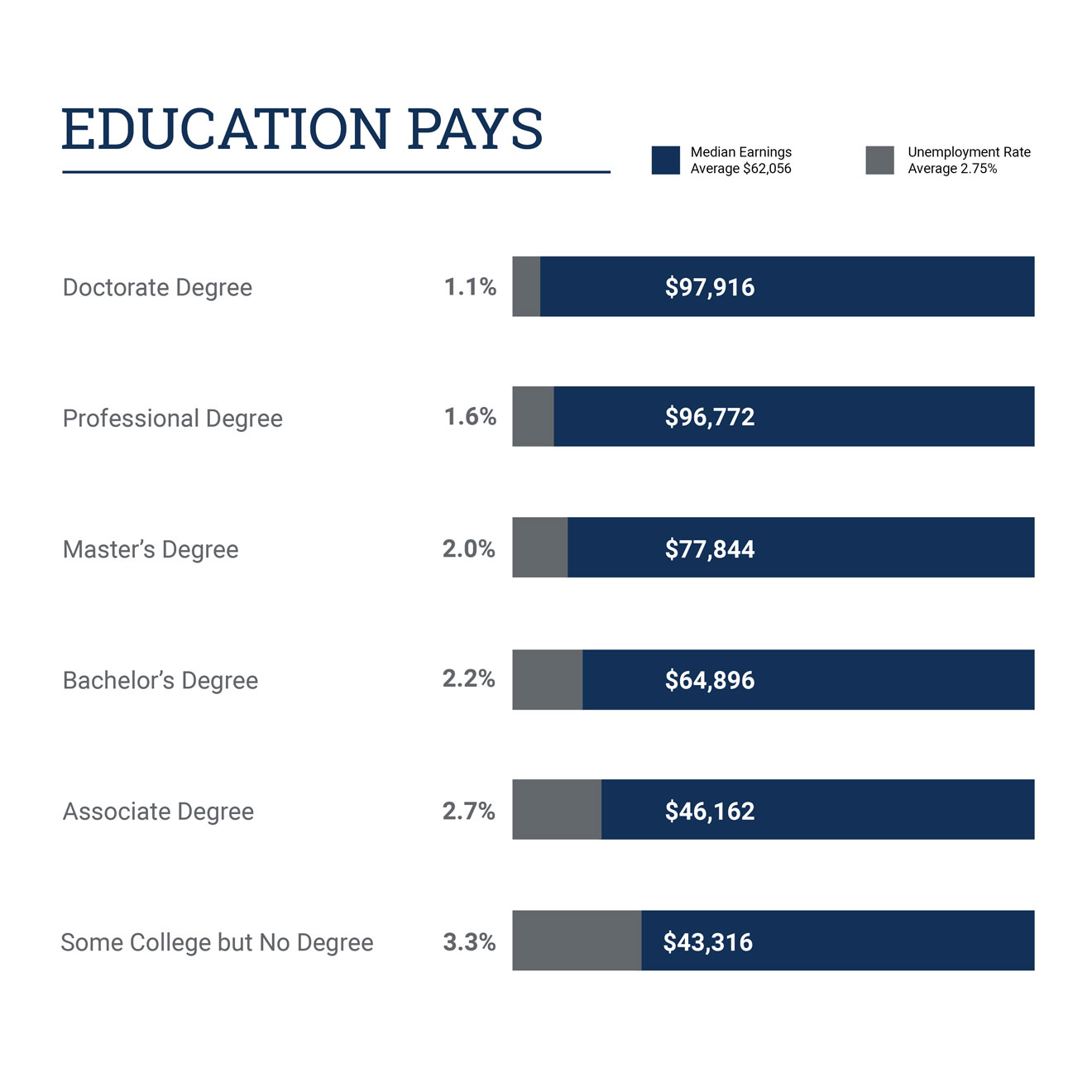University Academy Pathway
Complete your foundational college courses for many degree programs while you're still in high school. After high school graduation, move forward more quickly in your college and career plan.
What Is CCAC's Dual Enrollment University Academy?
- CCAC's Dual Enrollment University Academy courses provide essential 21st century skills for workplace and college success and the building blocks for many degree programs.
- CCAC's Dual Enrollment University Academy promotes competency in English composition, mathematics, analytical reasoning and computer literacy.
- CCAC's Dual Enrollment University Academy is an intentional design for high school juniors and seniors who are interested in taking transferable college courses.
Why Enroll in the University Academy?
- Dual Enrollment saves student time and money and helps students develop a college identity (Rhine, 2022).
- Dual Enrollment can result in positive outcomes at both the high school and the college level (Rhine, 2022).
- Dual Enrollment can be an effective practice when carefully designed as structured pathways across education systems (Career Ladders Project, 2019).
Program Information
Prior to enrolling in the University Academy, students take the CCAC placement tests in reading, English and math. Students in the University Academy will score as follows:
| CRE Reading Accuplacer | 263–300 |
|---|---|
| English via Student Self-Directed Placement | 23–44 |
| Math Placement Accuplacer | Pass the first two math tests and score 255 or better on the third test. |
If the student does not score as needed for MAT 142, they may take one of the additional options: BUS 101 or CIT 115.
The following courses are recommended for Year 1, Fall Semester:
| SEM 105–College Seminar | 2 credits - Lecture |
| Discover and use current college tools and services; explore academic strategies, culture, resources and expectations. Topics include career planning and graduation requirements. | |
| ENG 101L–English Composition 1 | 4 credits - Lecture + Lab |
| Discover and use current college tools and services; explore academic strategies, culture, resources and expectations. Topics include career planning and graduation requirements. | |
| Embedded Tutor and Writing Lab |
| Refine arguments; develop and support ideas; investigate, evaluate and integrate appropriate sources; revise and edit for effective style and usages; develop an awareness of the variety of contexts, audiences and purposes of academic writing. |
| ENG 101–English Composition 1 | 3 credits - Lecture |
| Refine arguments; develop and support ideas; investigate, evaluate and integrate appropriate sources; revise and edit for effective style and usages; develop an awareness of the variety of contexts, audiences and purposes of academic writing. | |
The following courses are recommended for Year 1, Spring Semester:
| ENG 102–English Composition 2 | 3 credits - Lecture |
| Develop crucial research skills, using technology to conduct primary and secondary research. Students produce multiple research-based writing assignments. | |
| SPH 101–Oral Communication | 3 credits - Lecture |
| Develop skills in organization and oral expression. Emphasis is on the way people communicate effectively in professional, business and social situations. | |
The following courses are recommended for Year 2, Fall Semester:
| MAT 142 OR BUS 101 OR CIT 115 |
| MAT 142–Pre-Calculus | 4 credits - Lecture |
| For students majoring in mathematics, science or engineering intending to take calculus. Topics include equations and inequalities, polynomial and rational functions and their graphs, exponential and logarithmic functions and their graphs, equations and graphs of conic sections, the theory of equations, systems of equations, inverse functions, and binomial expansion. | |
| BUS 101–Introduction to Business | 3 credits - Lecture |
| Provides a foundation in modern business and business practices, including principles of management, marketing and human resource management. | |
| CIT 115–Information Technology Fundamentals | 3 credits - Lecture |
|
Prerequisites: Basic skills using a personal computer and operating system. Explore technical issues involved with computers and information technology. Be able to set up a basic workstation, conduct basic software installation, establish basic network connectivity, identify compatibility issues, identify/prevent basic security risks, and demonstrate knowledge in the areas of safety and preventative maintenance of computers. |
|
The following courses are recommended for Year 2, Spring Semester:
| PSY 101–Introduction to Psychology | 3 credits - Lecture |
| Understand how the scientific method is applied to the study of human and animal behavior. Topics include: research results, the major principles and perspectives of psychology, applications of contemporary psychology, the structure and function of the nervous system, foundations of learning, abnormal psychology and its causes and therapies. | |
| BIO 100 OR BIO 110 |
| BIO 100–Life Science | 3 credits - Lecture |
| Introduces fundamental concepts pertaining to the scientific method, characteristics of life, biological organization, cellular metabolism, reproduction, central dogma, human biology, evolution and ecology/environmental relationships. | |
| BIO 110–Introduction to Biological Science | 4 credits - Lecture + Lab |
| Introduction to fundamental life processes. Emphasis is on molecular biology that includes the study of micro and macro molecules. Cellular biology is also emphasized, including structure, function, reproduction and genetics. This course incorporates an introduction to laboratory skills that includes the scientific method, metric system and microscopy. | |

Image Transcript
A chart titled "Education Pays" with two data points, Median Earnings and Unemployment Rate. The Median Earnings Average is $62,056 and the Unemployment Rate Average is 2.75%. The bar labeled "Doctorate Degree" has Median Earnings of $97,916 and an Unemployment Rate of 1.1%. The bar labeled "Professional Degree" has Median Earnings of $96,772 and an Unemployment Rate of 1.6%. The bar labeled "Master's Degree" has Median Earnings of $77,844 and an Unemployment Rate of 2.0%. The bar labeled "Bachelor's Degree" has Median Earnings of $64,896 and an Unemployment Rate of 2.2%. The bar labeled "Associate Degree" has Median Earnings of $46,162 and an Unemployment Rate of 2.7%. The bar labeled "Some College but No Degree" has Median Earnings of $43,316 and an Unemployment Rate of 3.3%.
